
Gradual death of journalism in Iran
The editorial of Sedaye Eslahat deals with hardships of journalism in Iran.
The editorial asserts that journalism is one of the most difficult jobs in the world, and it is more difficult in Iran than the rest of the world. If a journalist sings praises for managers and officials, then everyone will say he is a good journalist. But when the journalist wants to talk about discriminations, lies, injustice, and power-seeking, they will hit him so hard that he will not be able to stand on his feet again.
The editorialist continues by saying he doesn’t know if he should congratulate sycophant journalists or congratulate the real journalists who don’t have the basic rights and suffer from lack of proper livelihood. Those media journalists affiliated with the center of power who have to tell lies are totally different from real hard-working journalists.
The editorial adds that hardworking journalists who work with least amount of salary and are threatened by those in power have taken a huge risk by choosing journalism as their profession. If journalists are allowed to do their job properly, there will be no embezzlement, injustice, or discrimination any longer. But unfortunately, those who have power and wealth are stronger than the journalists.
The editorial concludes: real journalists and journalism are praiseworthy if they are impartial. The day when journalists are no longer able to write in defense of justice and people’s rights, it is the death of journalism.
An editorial in Sedaye Eslahat on August 8, 2018
Iran-US negotiation; mutual respect, mutual measures
The editorial of Setareh Sobh deals with conditions and difficulties for possible negotiations between the United States and Iran.
According to the editorial, Hassan Rouhani’s recent remarks, made in an interview on TV, suggested announcing his readiness for an unconditional talk with Donald Trump. Rouhani said Trump must go back a few more steps, but if he means these steps must be taken with regard to the nuclear deal, it is impossible that the U.S. returns to the deal. Therefore, setting this as the condition for holding talks will make it impossible.
The editorial asserts if Rouhani’s government and Trump’s administration are after a diplomatic solution, they must exchange their views through diplomatic channels, and not through propaganda. There are two simultaneous rules in international relations: mutual respect and mutual measures. It means that whatever one side does, the other side takes proper measure in response. If Trump has invited Iran for negotiation, it must be done through official channels, and Iran must respond proportionately.
Then the editorial goes on to say: this, however, is not the solution to problems and differences between Iran and the United States as it will not result in lifting sanctions or resolving the regional issues. The existing situation will go on until both sides sit at the negotiation table.
The editorial concludes: as Trump is not a professional politician, he naturally talks a different language. But if there is going to be a negotiation, the U.S. State Department and Iranian foreign ministry must talk to each other.
An editorial in Setareh Sobh on August 8, 2018
People’s rage building up
This editorial deals with Iran’s dire economy and people’s rage against reformists in this regard.
The editorialist begins by saying that Iranian people have had it up to here with skyrocketing prices, corruption, and the government’s inefficiencies. People have repeatedly voiced their hope in reformists, voting for them in elections. However, reformists have not been able to find a solution to their problems, and people can no longer wait for a change in relation to this particular point.
The editorial then zeroes in on President Hassan Rouhani and the role he and his administration play in creating unrest in society. Rouhani has become involved with those in his milieu who have no reasonable, organized relations with society and their political base. Neither can they pave the way for Rouhani to get connected with people.
All things considered, people expect reformists to speak their mind candidly and with clarity under current conditions. In the end, the editorialist claims that the only way out is reform, but it is really getting late.
An editorial in Mostaghal on August 7, 2018
Where is Rouhani?
The editorial of Jahan Sanat addresses the absence of Iranian President Hassan Rouhani from the public, amidst the current economic crisis in the country which has made people take to streets in protest against their deteriorating livelihood conditions.
The editorial asserts that these days amidst the economic crisis and under conditions when there are protests in different cities of Iran, there is not much news about Rouhani. Only a couple of days ago, his picture was published at the meeting of Supreme Economic Council, laughing among other officials. The picture provoked the anger of social networks’ users who said such a laughter could only mean mocking the grave social situation which exists in Iran.
The editorial points out that Rouhani’s last serious presence in the public was in the meeting of foreign countries’ ambassadors, in which he tried to take a strong, security stance by threatening the U.S. president “not to twist the lion’s tale.” Rouhani, however, is seen less and talk less. There is news concerning the cabinet reshuffle, and some say it will be a maximum change within a year of its formation. Still, he doesn’t talk about these changes either.
The editorial then goes on to say it seems Rouhani hasn’t understood the gravity of the situation, not knowing how costly this will be for his credit and even for the reformists. The reason why Iranian reformists find it hard to ask people to go to ballot boxes is that of Rouhani’s performance and their uncritical support for him. Above all, it seems that people have lost hope in both Rouhani and reformists.
In conclusion, the editorial says that under these conditions Rouhani must talk to people and with honesty. It is no longer acceptable to attribute all problems and issues to extra-governmental, unaccountable forces. He must talk to people directly and truthfully and tell them what is wrong with the country, as it is expected of the president.
An editorial in Jahan Sanat on August 6, 2018
The reason why China doesn’t accompany the U.S. on the issue of oil
The editorial of Arman daily reasons why it is to the advantage of China to continue importing oil from Iran, despite the U.S. pressure on countries that are buying and importing Iran’s oil.
The editorial opens with pointing to the rivalry between the U.S. and China in different economic and industrial fields. Both countries have certain considerations for each other that will have an impact on the issue of buying oil from Iran. China is quickly growing and developing in different sectors, given its more logical behaviors towards other countries. But the U.S., with its bullying behaviors, is losing its place in the international domain, and other countries, out of necessity, are forced to have relations with the U.S.
The editorial then infers that if China accompanies the U.S. in the issue of sanctioning Iran’s oil, it will practically increase its own dependence on the U.S, making itself more vulnerable. China imports a large amount of oil from the U.S., which makes it reliant on this country. That is why China will not increase its dependence on the U.S. by not importing oil from Iran. As a result, a continuation of importing oil from Iran is to the advantage of the Chinese.
The editorial continues: currently, China is after taking measures to not only retain the level of their purchase of oil from Iran – which is at about 650 thousand barrels – but to increase it. The Chinese have built – or are building – 20 oil refineries in recent years. Therefore, China mustn’t lose a good provider like Iran, as it is to its own advantage.
The editorial concludes that China is Iran’s first trade partner, and even though the amount of Iran-China trade is far less than that of the U.S.-China, it is very important for China as it is in the field of oil. Consequently, Chinese officials’ remarks as to continue to buy oil from Iran seem acceptable and to the advantage of Iran.
An editorial in Arman daily on August 5, 2018
Traces of power players in economic decision makings
The editorial of Shorou daily deals with how the decisions that are made with regard to the current economic crisis in Iran still benefit certain power players and institutions.
The editorial stresses that while an economic coup is underway and a part of it is because of increase in the rates in the currency market, creating a secondary market is in line with securing the interests of the certain group and is to the loss of the public. That is why one can easily identify the traces of power players and institutions in such vital decisions.
The editorial then provides an example of such decisions. Allocating $20 billion to those units which have created financial scandals for the country and at the time when even a dollar is important for the country is unprecedented in the 40-year history of the Islamic Republic.
The editorial goes on to say that it seems unlikely that the emergency policies of Iran-Iraq war era would be implemented given the combination of current policymakers, and that is because the policymakers are benefitting from the situation. That is why, the editorialist says, he doesn’t have any hope for the measures of the government, the parliament, or any other institutions in this regard.
The editorial urges at the end that this process is a continuation of the past policies, isn’t enough for the current conditions of the country, and will only prepare the grounds for the looters to take advantage of the situation and escape the country.
An editorial in Shorou on August 5, 2018

A Direct Iranian Order to Houthis to Attack Saudi Oil Tankers

“The Houthis have received a direct order to target the Saudi oil tanker on July 25,” said Nasser Shaabani, a commander in IRGC, praising the Lebanese Hezbollah and Ansarullah in Yemen and their mission to serve Iran and its role in the region. The Arab alliance announced late last month that the Houthis attacked one of the Saudi oil tankers in international waters west of the Yemeni port of Hodeidah.
The spokesperson for the Arab coalition forces in Yemen, Colonel Turki Maliki said, “At exactly 1:30 PM -Thanks to God- attempts has failed to attack after the intervention of one of the naval ships of the alliance and the implementation of a quick operation. The attack resulted in slight damages in the tanker, and completed its navigational line and sailed north accompanied by naval alliance ships.”
Etimad Online
Investors in financial institutions gather in front of Central Bank
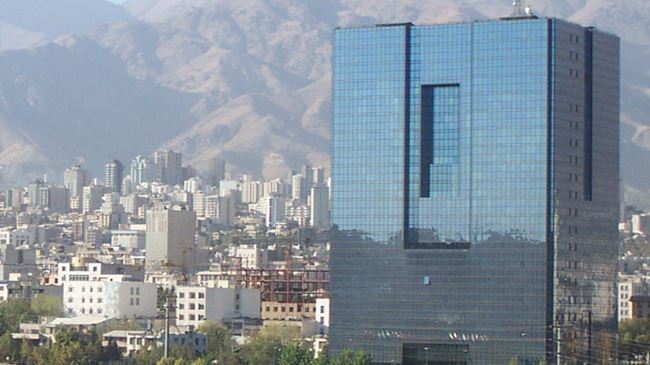
Investors in Caspian and Alborz Financial Institutions gathered once again in front of the Central Bank on Tuesday. They chanted slogans asking for their money and against the officials.
The issue of fraud by financial institutions has been going on for a while in Iran and defrauded people have held gathering protests repeatedly, asking for their money and chanting slogans against the officials.
Radio Zamaneh
Lawmaker: We must see protesters
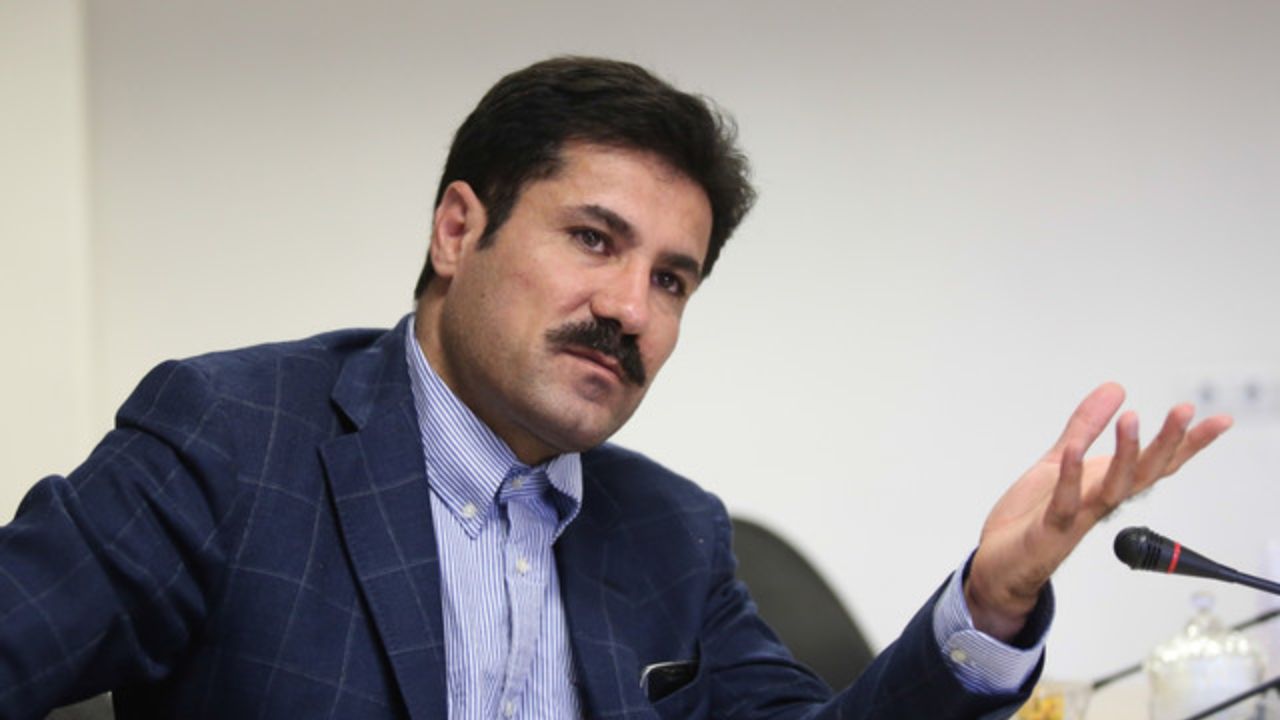
MP Abdulkarim Hosseinzadeh said in his open speech in the Parliament that today everybody knows that people have objections against their livelihood conditions, adding that “when we attribute these protests to outside the country, it means that we haven’t seen the protesters.”
He continued, “we must see the protesters and think of a solution within the fundamental framework. We must take a look at the protests that have been held since December if we want to find a fundamental solution.”
Etemad online
Parliamentarian: European countries must keep JCPOA for their own security

Head of the Parliament’s National Security and Foreign Policy Commission, in his meeting with Norwegian ambassador in Tehran, urged on the significance of continuation of the nuclear deal [JCPOA] with Iran, saying European countries must preserve JCPOA for their own security. Pointing out to good relations between the two countries in regional and international issues, Heshmatollah Falahatpisheh said: “Fortunately the generalities of Iran-Norway relationships haven’t been impacted by the atmosphere created by the United States.”
Mehr news
Labor minister sacked by the parliament
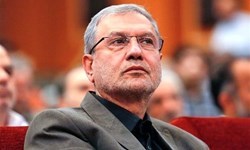
Iranian parliament gave a no-confidence vote to Labor Minister Ali Rabeei on Tuesday. Rabeei was impeached by 129 to 111 votes. This gives Rouhani three months to find a replacement.
As Iran’s economy has worsened in recent months, the Iranian regime and particularly hardliners have tried to portray Hassan Rouhani’s economic team as being mainly responsible for the increasing hardships that Iranians face.
In an interview before his impeachment, Rabeei had said the U.S. sanctions would increase economic pressures and until March 2019 one million jobs would be lost.
Farda news
Pakistan expert: Good opportunity to provide interests of Iran, Pakistan
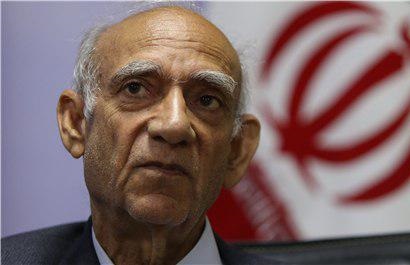
Pir-Mohammad Molazehi, the expert in Pakistan issues, said Pakistan is bolstering its relations with important countries like China, Russia, and Iran. He added Pakistan seeks to have a balanced relationship with different countries particularly in southern Asia and the Middle East.
Molazehi pointed out to that fact that Pakistan is the only country that has nuclear weapons, has Muslim populations, and has a long joint border with Iran, adding that given this country’s willingness to develop cooperations with Iran, Islamic Republic can use Pakistan’s capacities to advance its regional and national interests.
Young journalists club
Increase in number of elderlies in Iran

Leyla Joodan, the representative of United Nations Population Fund in Iran, said the population of elderlies in Iran will reach from 8 million to 14 million by 2030. She added that by 2050, one-third of the population – about 30 million – will be elderlies.
Shahrvand
IRGC official: Revolutionary Guards must announce position in certain cases
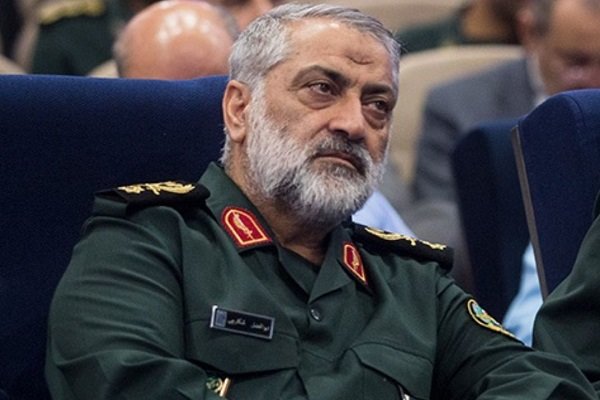
General Abulfazl Shekarchi, the senior spokesperson of armed forces, said Iran Revolutionary Guards Corps (IRGC) does its legal duties, and as one of the pillars of the establishment’s authority, it must announce its position in certain cases. He added that “it is natural for politicians to want to submit to the enemies and make people give in to them, but no one is going to allow them to do so.”
Following Donald Trump’s suggestion for an unconditional talk with Iran, IRGC commander Mohammad Ali Jafari said, “Iranian people will never allow a meeting with Great Satan.” Deputy speaker of Iranian parliament Ali Motahari wrote a letter to Jafari, telling him that IRGC must follow the decisions of establishment’s high-ranking officials.
Mehr news
Assembly of Experts demands improvement in economic conditions
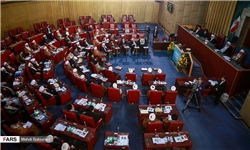
Assembly of Experts issued a statement, asking the heads of branches in Iran to improve the economic conditions in the county and resolve people’s livelihood issues. The statement says: “What has created poor economic conditions is weak economic management, the influence of the enemy, corruption, economic disruption, and tying the national interests and economic openings to foreigners.” It adds: “The public opinion expects that the heads of branches, particularly the president and senior economic managers, to take practical steps to improve the economic conditions and livelihood issues.”
Fars news agency
Price of gold and dollar plummets

Following the announcement of the new currency package by the Iranian government, the price of gold and dollar dropped in the free market. Abdolnaser Hemati, the new governor of Central Bank, recently announced new government’s policies for foreign currency. He added that the currency shops would come back to the cycle of currency trade in Iran, urging that the price of currency in the secondary market would be determined by supply and demand in the market.
According to the new policies, buying and selling currency which was earlier announced as “smuggling” is no longer considered a crime.
Fars news agency
European Union: laws to counter U.S. sanctions against to be enforced
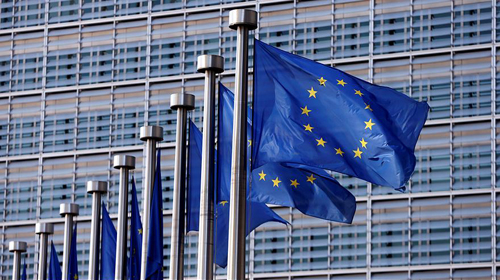
EU policy chief and foreign ministers of three European countries issued a statement expressing regrets as to the U.S. re-imposing sanctions against Iran, adding that laws for confronting U.S. sanctions would be implemented. They urged that they would try to keep effective financial channels with Iran and maintain the sale of Iran’s oil and gas.
The United States re-imposed sanctions on Iran on Monday, putting more pressure on the Islamic Republic despite statements of deep dismay from European allies.
Federica Mogherini, EU foreign policy chief, said Tehran has upheld its obligations under the nuclear deal, adding that it is up to Europeans to decide whom they want to trade with. “We are encouraging small and medium enterprises, in particular, to increase business with and in Iran as part of something that for us is a security priority,” Mogherini said.
Bartarinha
Lawmaker: the Illegal seizure of people’s properties in the name of Islam and Velayat-e Faqih
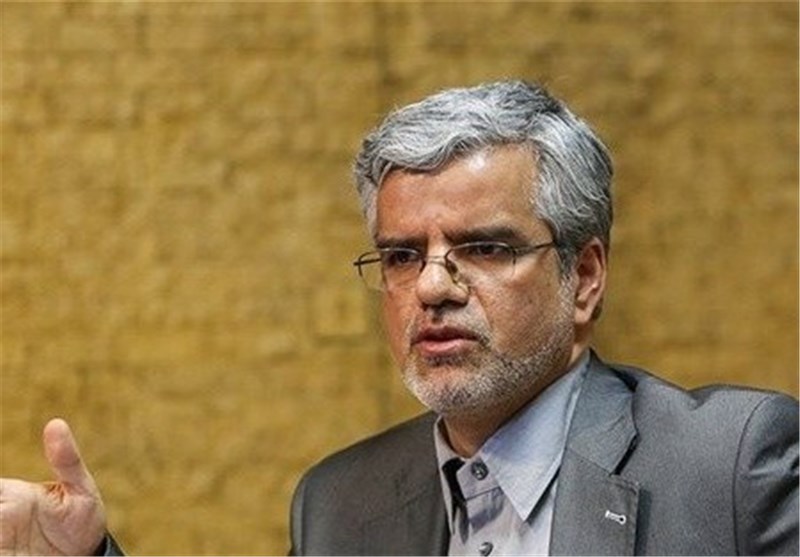
In questioning economy minister about judiciary system’s accounts, Tehran MP Mahmoud Sadeghi said “the judiciary system deposits people’s money into its own accounts and gets profits,” urging that “we all complain why no one fights corruption. But when judges swindle people’s money, how can they fight corruption?”
Sadeghi asked, “why in the name of Islam and Velayat-e Faqih, people’s money is illegally seized?” He accused the judiciary system of using the profit of these accounts on “housing and benefits of judges.”
ILNA
Economic diplomacy, the solution to Iran-Oman relationship
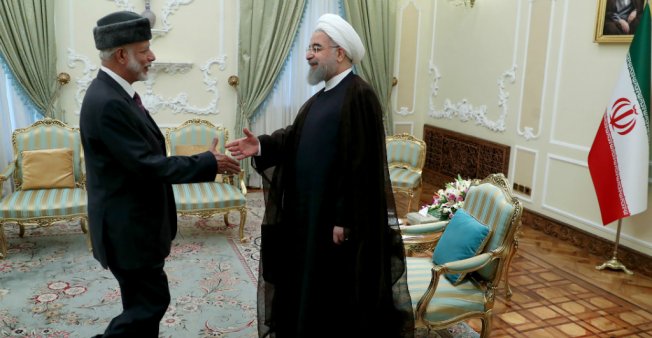
Iranian ambassador to Oman expressed hope for the relationship between Iran and Oman, urging that Oman is a safe country for investment and is after increasing trades with this country. Nouri Shahroudi said Iran’s economic sector hasn’t been able to benefit from the “exemplary relation” between the two countries as much as the political sector, and in past two years, good steps have been taken to fill the gap in the economic relations between the two countries.
As for the impact of the nuclear deal [JCPOA] on the relationship of Iran and Oman, Nouri Sharoudi asserted that after the JCPOA, Oman took the initiative of issuing a visa for Iranian citizens at the airport with the aim of increasing commercial and economic relations. The U.S. pulling out of the JCPOA might impact the cooperation of some private companies, but the governments are resolved not to decrease their relationship.
Metal news
Protests continue, one dead, undeclared martial law in Karaj
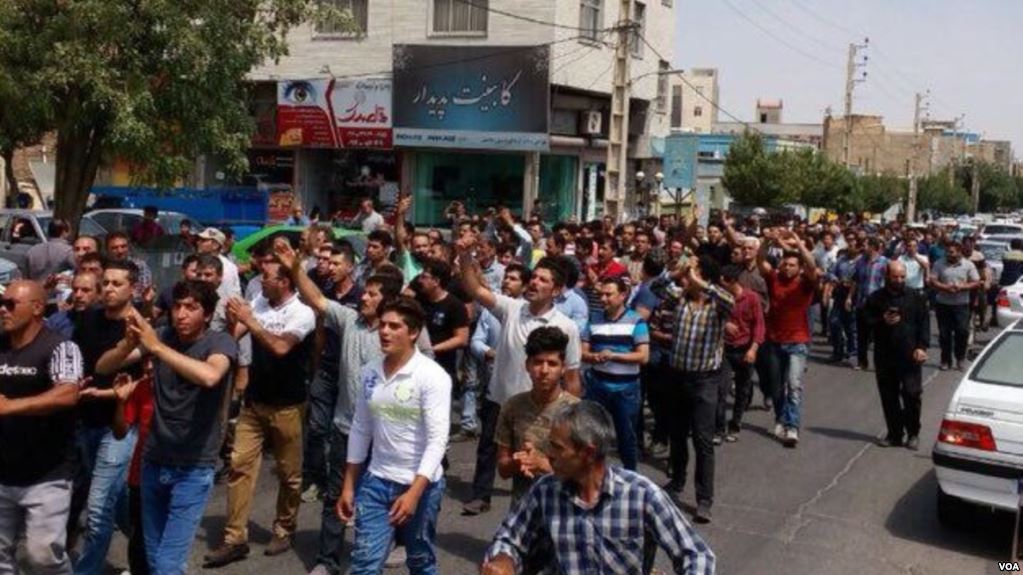
Popular protests hit several cities in Iran on Saturday night. Along with confirming the death of a protestor in the city of Karaj, the city’s officials declared the implicit martial law in the city. Film footages sent to VOA show that at least in the cities of Tehran, Karaj, Shiraz, Qom, and Eshtehard, people held demonstrations on Saturday night.
Fars news agency, affiliated with IRGC, announced that an individual was shot dead in Friday night protests in Karaj. This is the first death in the new round of demonstrations in cities of Iran. In December protests, at least 23 people were killed in more than 80 cities of Iran.
In Tehran, protesters chanted: “Iranians will die, but will not accept humiliation” and “Death to Dictator!”
VOA
Currency deputy of Central Bank arrested

Judiciary system spokesperson Gholamhossein Ejei said the currency deputy of the Central Bank, who was recently removed from his position, was arrested. He added that in dealing with cases of disruptors in the country’s financial system and currency, three individuals would be soon going to courts after issuing their indictments.
Meanwhile, 20 lawmakers wrote a letter to the head of the judiciary, asking him to ban former governor of the Central Bank, Valiollah Seif, from leaving the country.
Fars news agency
Abedzadeh: We have special plans for passing through sanctions
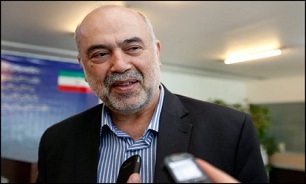
Head of Iran Civil Aviation Organization, Ali Abedzadeh, said the duty of his organization is to not only guarantee the safety of flights but to develop the country’s aviation industry. He added that Iran has special plans for passing through the sanctions imposed by the U.S.
Iran Air has signed contracts for 20 ATR short-range aircraft, 13 of which have been delivered so far. Following the nuclear deal, Iran Air managed to sign contracts for purchasing 200 aircraft, but due to the U.S. sanction and rescinding the permit to sell aircraft to Iran by U.S. Treasury Department, Iran has received only a few of these aircraft.
Mizan online
Executive of Construction Party: People do not trust officials
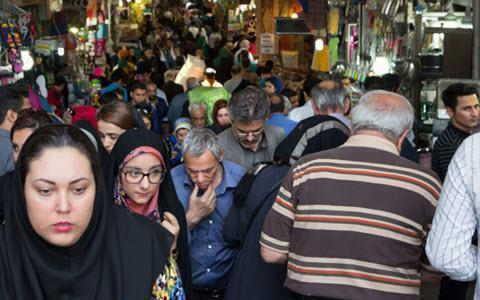
Spokesperson of Executives of Construction Party said currently the society doesn’t believe in what the officials say, which is why the less they talk, the better. Hossein Marashi added officials, as usual, try to say everything is normal, but people won’t believe it and it makes them angrier. He urged that trying to show everything is normal will not convince people and will only make them more distrustful of the officials.
As for criticisms concerning the silence of Rouhani and some members of the cabinet, Marachi said that it is very good that the government officials are not talking about recent issues; the less they talk, the better.
Ghanoon Daily
Kazem Sadighi: Iran will not negotiate with this U.S. president and administration
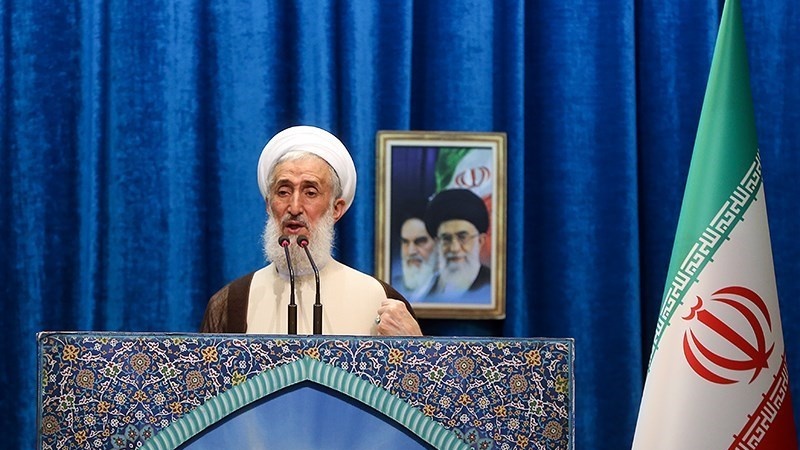
Tehran Friday prayer leader Kazem Sadighi said Americans don’t want to negotiate, but if Iran is ever going to negotiate with the U.S. one day, it is impossible to hold negotiations with this U.S. administration and president. Sadighi pointed out to the U.S. president’s suggestion for unconditional talks with Iran, adding the U.S. pulling out of the JCPOA made it impossible to have any re-negotiations with the current U.S. administration.
On July 30, U.S. President Donald Trump had announced his readiness to “unconditionally” negotiate with Iran.
Pars Today
Protests continue in Iranian cities
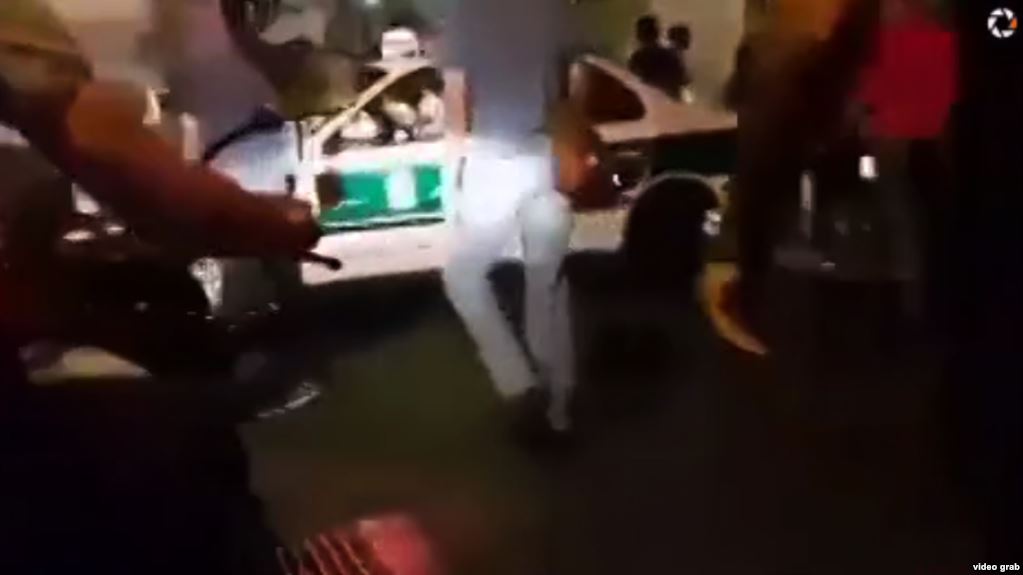
Released footages in social networks indicate that gatherings and protests have continued in Tehran, Karaj, Shiraz, Qom, and Eshtehard. In footages related to demonstrations in Tehran, the protesters chanted: “Iranians will die, but will not accept humiliation,” “Iranians must show their courage,” “Death to Dictator,” and “Courageous Iranians, Support us.”
In another footage, the narrator says: “Here everybody is exhausted. They all have wives and children and are under injustice. Here everybody has a lot of debts. Look, we are all together. We are exhausted. We all want freedom.”
In Karaj, the protesters chanted: “Shame on you, Khamenei; let go of the country” and “Law enforcement, support us!”
The new round of street protests in Iran started following the plunge in the value of the national currency, critical economic conditions, high prices, and daily increase in the price of foreign currency and gold coin. But in recent days, the protesters’ main slogans have been against the supreme leader, the regime, and the clerics.
Radio Farda
Iran resumes exporting electrical power to Pakistan
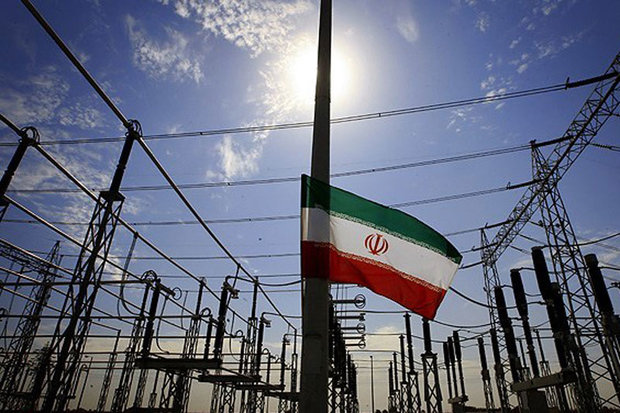
Following the talks of the head of Parliament’s National Security and Foreign Policy Commission with the energy minister, Iran’s export of electrical power to Shi’a regions in Pakistan has resumed. Following the increase in electrical power consumption and also Pakistan’s debts to Iran in this regard, the Islamic Republic had stopped exporting electrical power to Pakistan.
Parliament news agency
Ahmad Araghchi removed from currency deputy in Central Bank
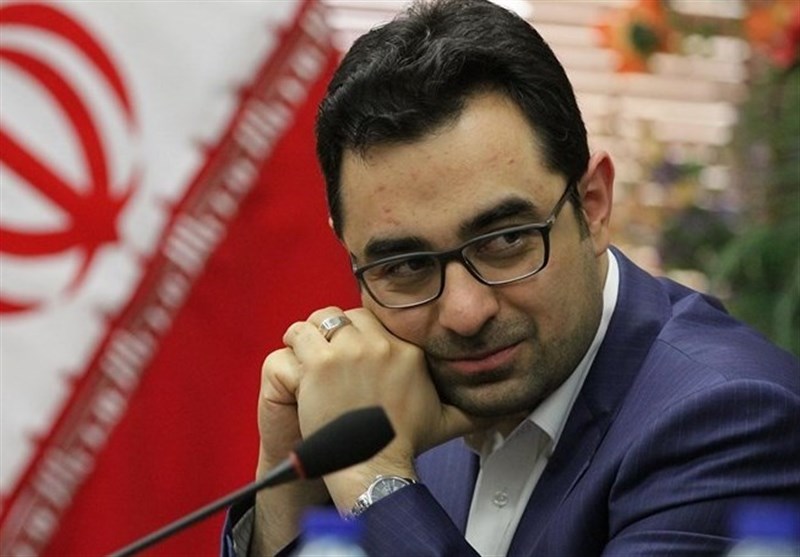
The new governor of the Central Bank of Iran Abdulnasser Hemati, in his first days, dismissed Ahmad Araghchi from the position of currency deputy to the Central Bank. Ahmad Araghchi is the brother of Abbas Araghchi – the senior member of Iran’s nuclear negotiation team.
Ahmad Araghchi was appointed to this position in 2017, while it was said that he lacked the sufficient experience for it.
Tasnim
Labor minister predicts: 1 million to lose jobs in Iran due to new sanctions
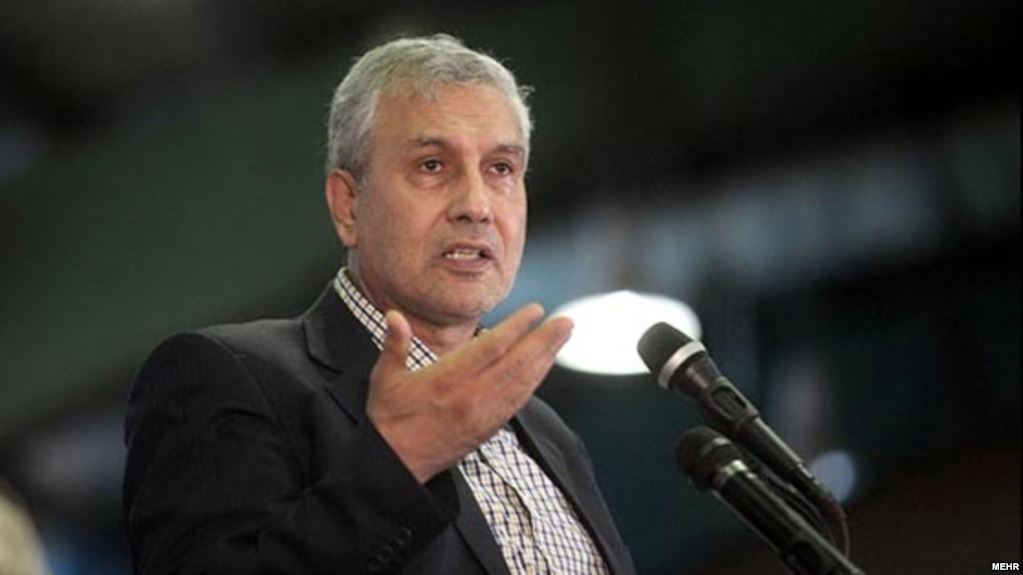
Ali Rabiee, Iran’s Labor Minister, urged that by the end of this year, economic pressures will increase on the country and people due to the U.S. sanctions, predicting that one million jobs will shut down in Iran because of implementation of new sanctions. He said, “we must talk to people honestly and tell them that we have entered a real war.”
The first round of the U.S. sanctions against Iran would start on August 6, and by the time of return of all U.S. unilateral sanctions against Iran on November 4, the U.S. is resolute to cut oil export from Iran to zero,
Radio Farda
Mashhad’s seminary students joined protesters
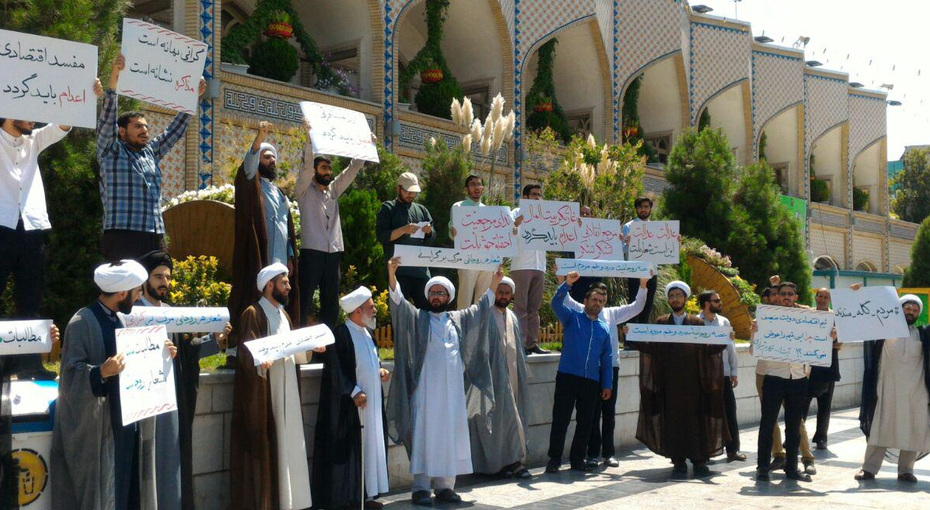
A number of seminary students in the city of Mashhad held a gathering, following harsh remarks of Ahmad Alamolhoda and some religious authorities about poor economic conditions. The protesters called for the judiciary system and lawmakers to confront those responsible for corruptions and high prices. The seminary students chanted slogans such as: “Clerics worry about people’s pain,” “Plunderers of treasury must be executed,” and “We don’t want inefficient ministers.”
The gathering took place a few hours after Alamolhoda, Mashhad’s Friday prayer leader, asked people to take to streets in protest against high prices.
Iran Wire
Reformist activist: Question, impeachment not the solution

Abdullah Nasseri, the reformist activist, said with regard to impeaching Labor Minister Ali Rabiee that “one must pay attention that the economic problems of the government and the country go beyond asking a question from the president and impeachment or replacement of a few ministers.” He added that the officials and lawmakers must know that Iran’s economic problems have political and international reasons, and nothing particular would happen with replacing a minister.
Shahrvand
